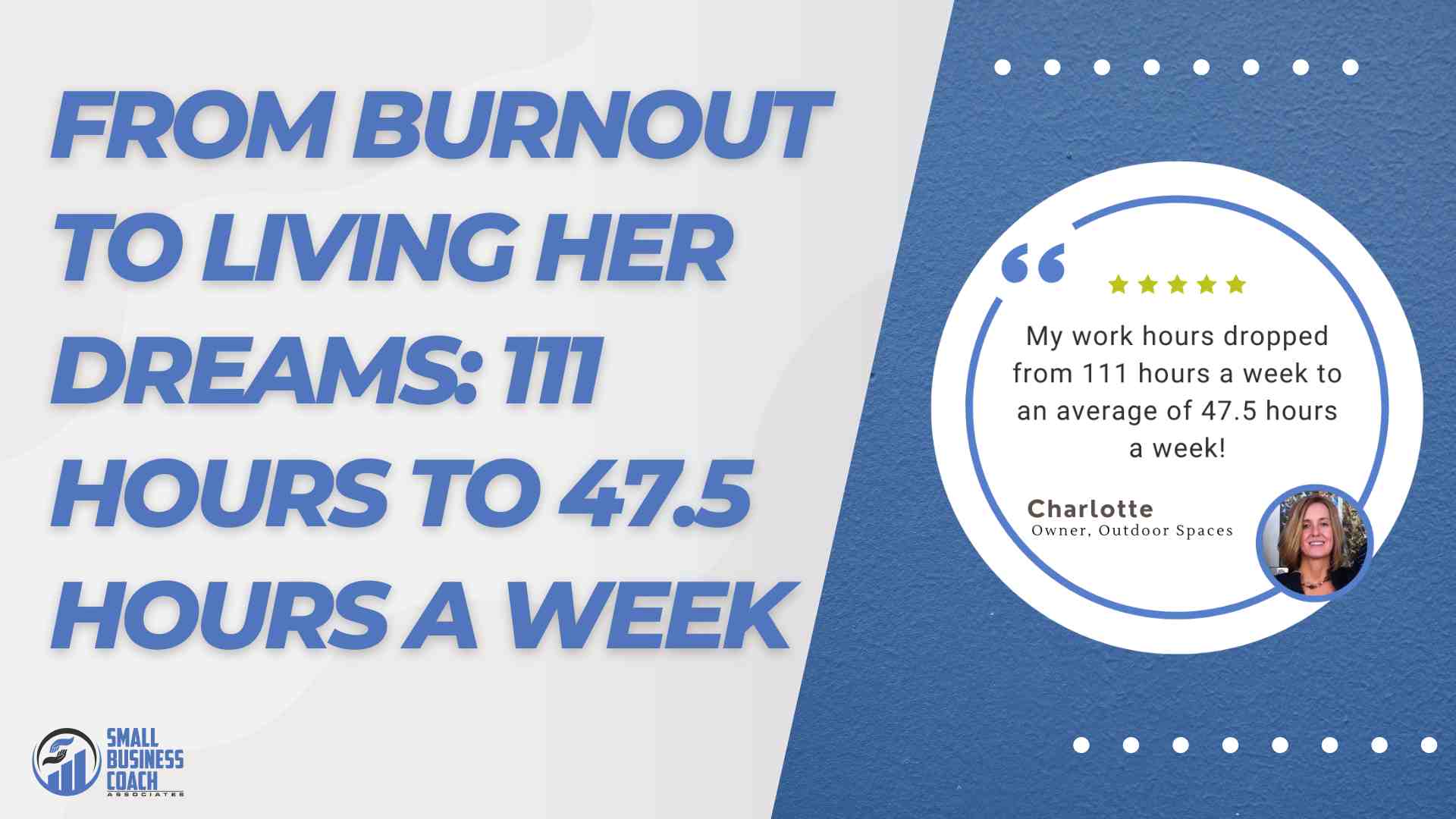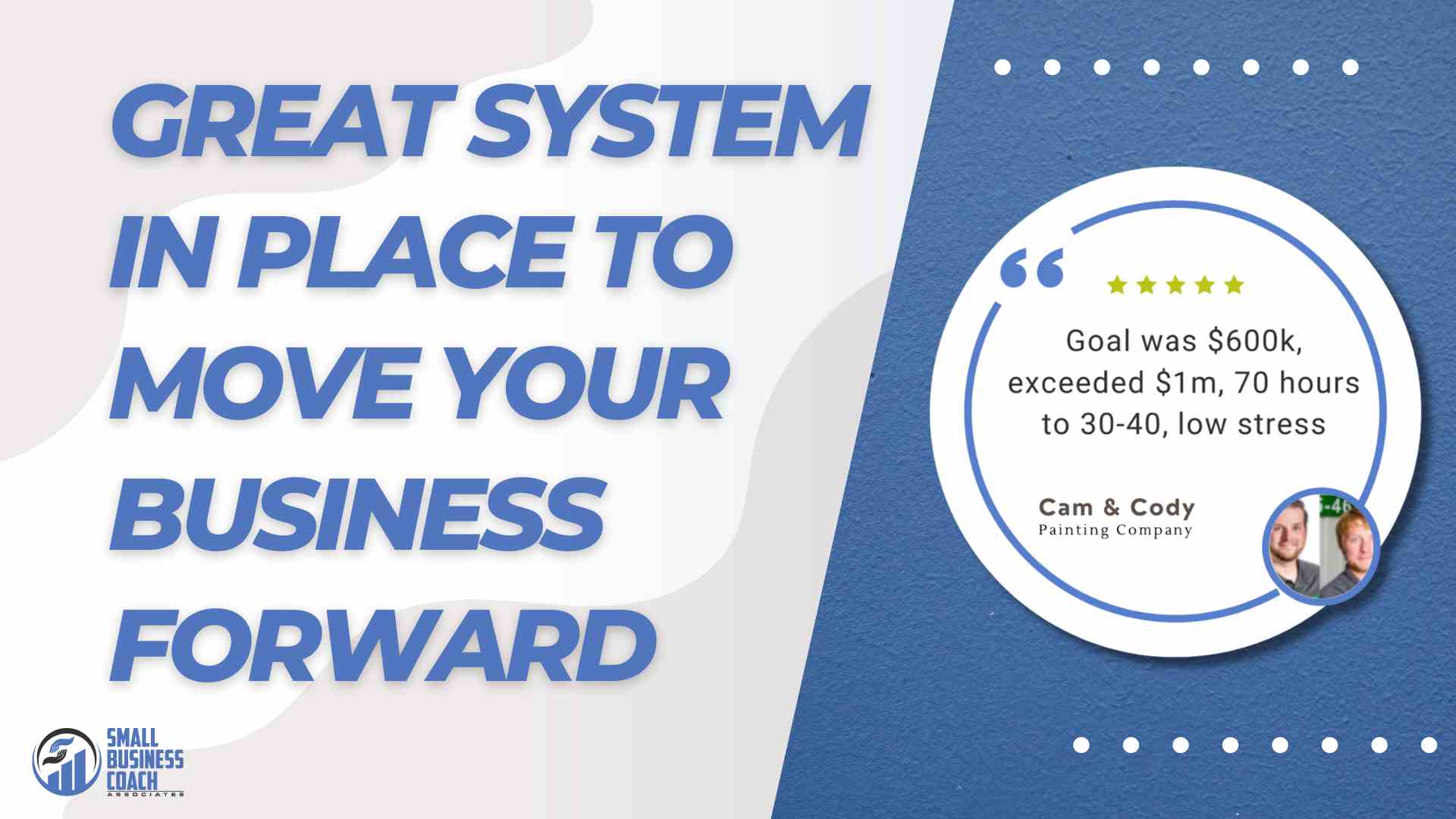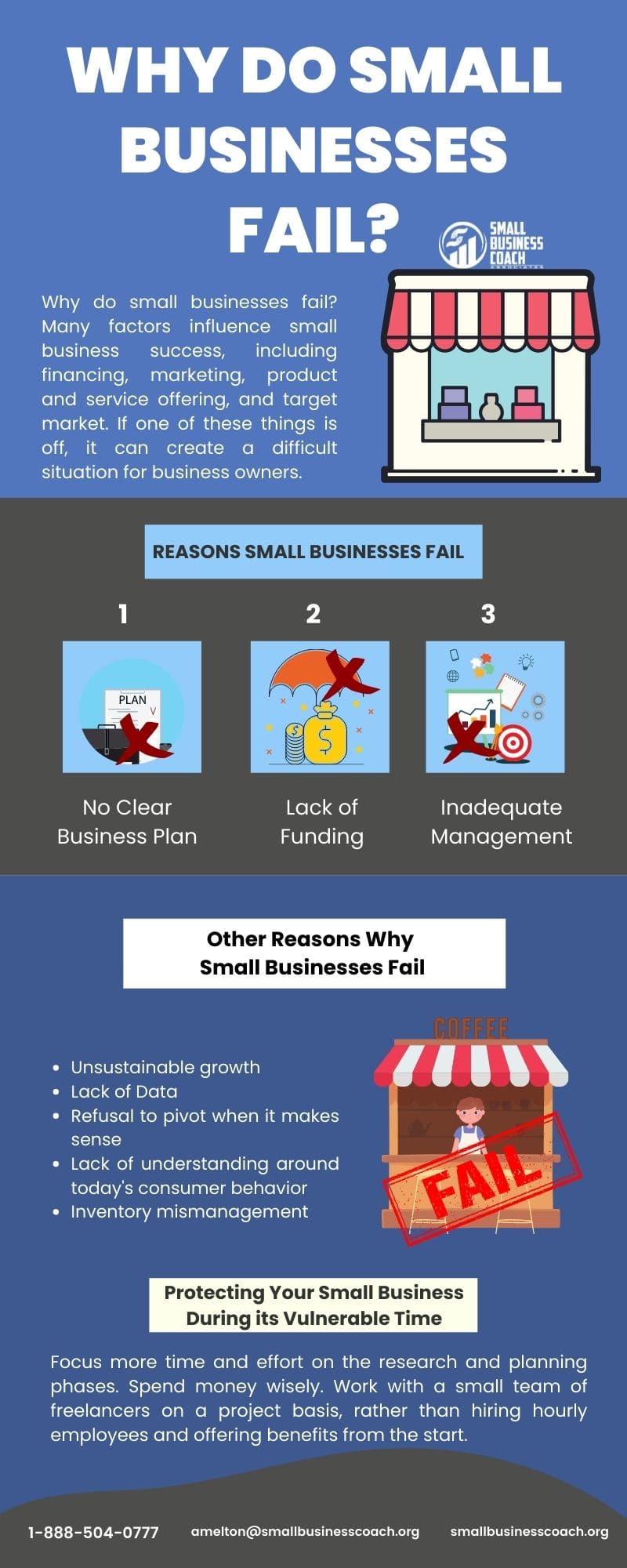VIEW BY TOPIC
- Finding Customers
- Business Systems
- Managing Employees
- Leadership
- Managing Money
Related Posts

Ready to Grow Your Business Fast?
Here’s How I Grew Five Businesses, and Eventually Sold One to a Fortune 500 Company.

Why Do Small Businesses Fail?
According to the Small Business Administration (SBA), in 2016, the U.S. was home to 30.7 million small businesses. Those businesses employed 59.9 million people, accounting for 47.3% of the workforce. And yet, small businesses fail.
Whether it’s a one-person show or a small company with fewer than 500 employees – you’ve got a small business. These are the lifeblood of the American economy… and yet, many small businesses don’t even make it past their first year. About half of them fail within the first five years, and only 1/3 of them make it to the 10-year mark.
Why do small businesses fail? Many factors influence small business success, including financing, marketing, product and service offering, and target market. If one of these things is off, it can create a difficult situation for business owners.
Reasons Small Businesses Fail
Not everyone who dreams of owning their own business has the knowledge and skill it takes. But even seasoned entrepreneurs aren’t guaranteed a win.
No Clear Business Plan
When you get excited about something, it’s easy to want to dive right in and get started. It isn’t simple to answer the question of why small businesses fail. Unfortunately, that motivation and enthusiasm about your new business idea will only get you so far. Business owners who do not plan adequately before launching to the public will undoubtedly suffer. And that poor planning may not come back to bite you right away – but it could spell the end of your business much sooner than you’d planned.
Before you even start becoming a legal small business owner, you should first develop a business plan. No clue where to start? There are plenty of templates available to help.
Your business plan should include:
- A description of the business and value proposition – the clearer, the better.
- An overview of your capital needs, including operating capital, projected cash flow, revenue stream, budgets, etc.
- Current and future staffing needs, including management
- Market research and competitor analysis
- Marketing needs and initiatives
- Broader market opportunities and threats
Make sure you have a solid grasp of your industry and competition. For the greatest chance of success, establish a sound business model and company infrastructure before building out a single product or service.
Small business owners who do not address business needs with a plan before operations start will create unnecessary challenges. Those challenges may be overcome or they could directly cause business failure.
That said, small businesses should also take the time to regularly review the initial plan and make adjustments for the future based on changing conditions.
Lack of Funding Can be why small businesses fail
The biggest reason for business failure comes down to money. If you don’t have enough cash flow to support your business during the growth phases, you’ll eventually have to close shop.
Funding for startup companies takes many forms – from a small business loan to crowdfunding and venture capital investments. If you plan on approaching a bank to get funding for your journey as an entrepreneur, you shouldn’t skimp on business planning. Banks want to know they’ll be able to recoup their investment – and if you can’t prove how and when you’ll make money, banks won’t give it to you.
All businesses need a certain amount of cash reserves to fall back on to keep operations running while you wait for accounts receivable to come in. This won’t change as you grow. But, with the right investments and growth strategies, you’ll be able to keep enough money in the bank to keep things moving even if you hit a sales slump.
Small business owners may harm themselves with pricing. If entering a saturated market, it may be tempting to price everything low to capture the market. Doing so may get you customers, but if it means you don’t have enough revenue to generate a profit – you’re not doing yourself any favors.
Marketing Efforts Fall Short
All too often, business owners underestimate the importance of marketing initiatives. They may target the wrong customer base. They may need a bigger marketing budget to execute their marketing campaigns.
One of the most effective marketing efforts you can focus on is getting more Google My Business reviews. Data shows 97% use online media to shop locally. That means most people research your business before ever engaging with you. Your Google My Business presence works much like word of mouth. It will help your search engine optimization efforts, too.
Besides your business plan, spend some time developing a full marketing plan. Outline what you need to do and how you’ll do it. Include the money you’ll spend. Consider hiring a research firm to help ensure you’re targeting the right customers.
Inadequate Management
Another reason companies falter within the first year is that many times, the business owner is the only management staff. A business owner may have the skills to create a product or service, but could easily lack the required management skills to appropriately manage a team.
Without adequate management in place, it’s easy to mismanage crucial parts of the business – from hiring staff to marketing, or finances. A smart business owner recognizes their weaknesses and outsources those areas. Be it because they don’t have the knowledge to handle a task well or just don’t have the time to handle it correctly, effective business owners know a strong leadership team is critical to long-term business success.
Other Reasons Why Small Businesses Fail

These, of course, aren’t the only reasons a business may not make it. No one can plan for every scenario, but the more you’re aware of from the beginning, the better. Other causes include:
- Unsustainable growth
- Lack of data
- Refusal to pivot when it makes sense (did you know that Nintendo and Twitter are only successful today because of the choice to pivot?)
- Lack of understanding around today’s consumer behavior
- Inventory mismanagement.
Protecting Your Small Business During its Vulnerable Time
Don’t let the fact that only 20% of businesses survive their first year scare you. It’s okay to start small and scale up. Focus more time and effort on the research and planning phases. Spend money wisely. Work with a small team of freelancers on a project basis, rather than hiring hourly employees and offering benefits from the start.
Where are you on your small business journey? What advice do you have for brand new entrepreneurs? Let us know in the comments.
Author Bio:
Lucinda Honeycutt is the Head of Content for Orbit Local. She has 13 years of experience in content creation, WordPress, and SEO. When she’s not writing, she can be found binge-watching true crime TV or listening to an audiobook.













